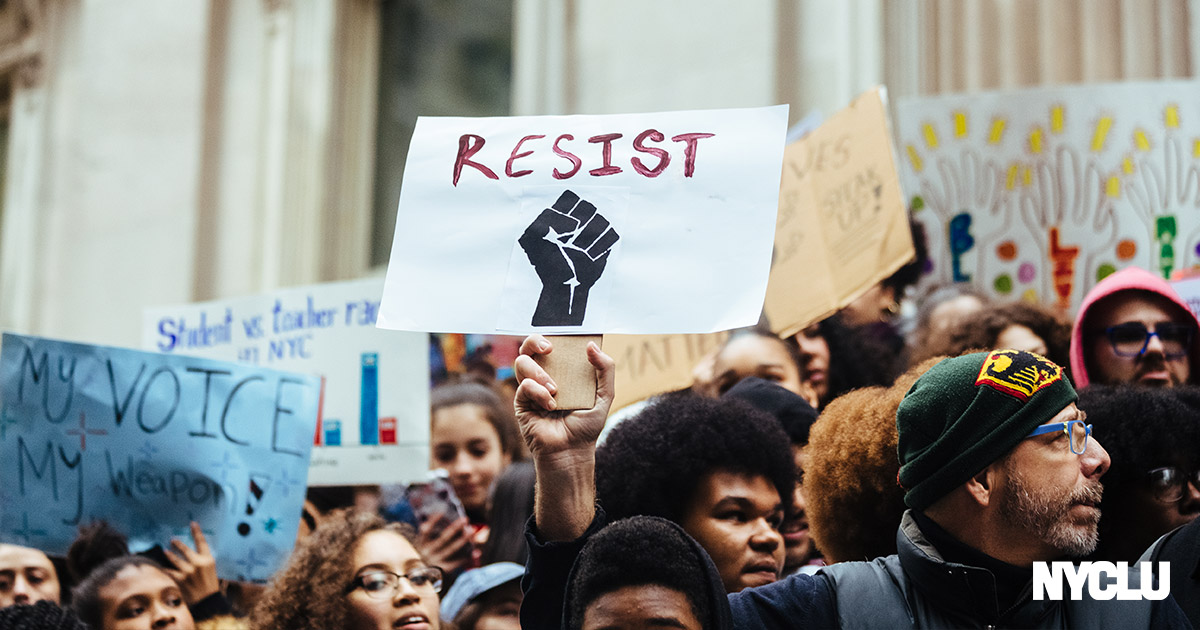A Long Island Legislature is Robbing New Yorkers of Color of their Voting Rights
Civil Liberties Union

Nearly every day, we’re presented with more proof that the coronavirus is hitting New Yorkers of color especially hard.
The reasons for this are many, and some have likely not been uncovered. But ultimately, this disproportionate impact is no surprise.
Last week, the State Legislature held hearings exploring solutions to the disproportionate impact of COVID-19 on “minority communities.” The NYCLU submitted testimony calling for policing and criminal legal system reforms that reduce the number of people who are arrested and behind bars, stronger worker protections that will especially benefit people of color and immigrant New Yorkers, and investments in education.
These solutions are necessary yet not specific to the COVID-19 pandemic. And, as we advocate for policy solutions to mitigate the immediate harms to people and communities in this period of crisis, we must also address structural racism – a foundational policy undergirding the inequities we must fix.
Communities of color don’t need reminders that racism is baked into public policy and culture, though the pandemic provides these examples.
Black and Latinx people getting targeted by police for both wearing and not wearing protective face masks highlights the fact that laws are sometimes a function of power and oppression rather than justice and safety.
And then there’s the recent incident in which a white woman in Central Park falsely claimed in a 9-1-1 call that an “African American man” was threatening her. This encounter offers evidence of the not-so-quiet partnership between private and government actors to maintain systems of racism.
Communities of color don’t need reminders that racism is baked into public policy and culture, though the pandemic provides these examples.
It’s no coincidence that wages and workplace protections decrease when the majority of workers in a given sector are people of color, or that they are the vast majority of essential workers in New York City.
These sorts of disparities can be traced back to historic political choices, like the decision to deny domestic and agricultural workers the protections guaranteed by the National Labor Relations Act of 1935.
New York only rectified this injustice in 2010 and 2019, respectively, after long and intense worker-led advocacy campaigns.
Not only are communities of color denied protection and opportunity, we are actively targeted by people and systems that are supposed to protect us, often with life-derailing consequences.
We saw this recently when viral videos showed NYPD officers violently arresting people while supposedly enforcing social distancing laws.
Racism, like the coronavirus, is a crisis. As long as it informs social and political responses, inequities and injustices will shift and morph but never disappear.
Even undoing discrimination at every juncture of our systems only stops the perpetuation of harm, it does not repair the damage. Beyond policies to mitigate immediate harms, communities of color deserve opportunities to recoup and rebuild what has been routinely denied and intentionally taken.
This is increasingly important in the aftermath of national disasters, when, studies show, the wealth gap between white people and people of color widens.
To be certain, solutions to our immediate crisis for communities of color are urgent and important.
People need to be released from jails and prisons and free from law enforcement discrimination and abuse. Workers need equal rights and adequate protection. People need access to quality, accessible food and health care, stable homes, financial resources, and childcare. Students need the education they’re legally entitled to, and we must resist unchecked erosions of personal privacy.
Beyond these responses, we will need to keep our focus on historical and current inequalities long after the newness of this crisis wears off.
We need to permanently end mass incarceration. This means divesting from carceral systems and investing in healthy communities. We must rebuild communities without displacing the people who live in them. We need to reimagine education without punishing students. And we need to value workers, not exploit them.
And as we work toward these goals, we must also directly confront the racism that got us here.
Racial inequality has been a steadfast driver of government policy for generations. We need to be deliberate in our efforts to confront it and to repair the harms it has caused.